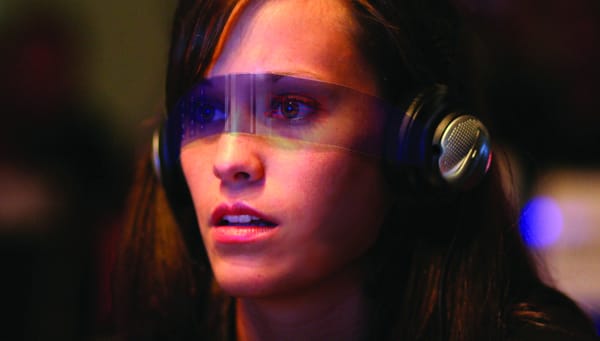‘Everything everywhere’ a reality?
Feroz Salam picks out the top tech debuting this summer

As summer draws nearer and the spring round of exhibitions and trade fairs draws to a close, there’s a lot of shiny new technology to look forward to over the next few months. Driving the latest round of products is the incessant slide towards perpetual connectivity: be it mobile, tablet, laptop or the increasingly elusive desktop, all major tech players are pushing to have you wired 24/7.
NFC and mobile wallets
The most noticeable push this summer will lie in NFC and the possibilities it opens up for mobile wallets. To the uninitiated, NFC chips are a close relative to the RFID chips that you have in your student and Oyster cards. The new NFC technology that is being championed by telecom operators and device manufacturers alike will allow your phone to read and write data to sensors and other phones by touch alone.
The applications for the technology are very promising. Tapping two phones together could transfer a song between friends, or connect them on Facebook. The real money will lie in mobile wallets, however. The concept of using your phone as a wallet (tap-to-pay on special till sensors) has been floated for at least a decade and has made some inroads in the Far East, but hasn’t kicked off in earnest yet. This is all set to change in the next few weeks, as card companies, phone manufacturers and line operators are all jockeying frantically for a slice of what might be a huge revenue pie. Orange’s Samsung QuickTap handset has already been introduced in the UK, and the three major mobile operators in the UK (Everything Everywhere, Telefonica and Vodafone) have just announced a move to form a mobile payment joint venture that will bring widespread coverage ‘before the end of the year’. With Google Wallet also promising similar functionality in the near future, the death of cashpoints may be within sight.
Location, location, location
GPS on phones has been available for some time now, but it has taken a while for most businesses to cotton on to the potential of knowing exactly where your user is. While services that depend on location often tread the fine line between creepy and useful, there’s something to be said for the wealth of location-based discount services mushrooming on social networking sites. Check-in, publicise the restaurant, receive a coupon and everyone’s happy. It’s not everyone’s cup of tea, but on a student budget, I’m not complaining.
Take your stuff with you
The potential of the ‘cloud’ has been trumpeted by the media for the last few years now, but there has been a stark absence of many real cloud products beyond data backup and Google docs. If the last few months are any indication, however, 2011 is poised to be the year where you’ll never have to worry about leaving home without your books, music or videos.
Amazon, Google, Apple and Spotify all have huge plans for your music library - their services will all give you varying degrees of access to your songs across your devices. Spotify’s services have been up and running in the UK for a while now, and the others are supposed to roll out from late 2011 onwards. Along with the Kindle’s cross-platform books service and rumours of a launch for streaming movie provider Netflix, there will soon be no barrier to carrying your media with you wherever you go.
The summer will also see the launch of Google’s Chromebooks in the UK. A radical re-envisioning of what a laptop should look like, the system only comes bundled with what is essentially a browser. In future, you will be able to find all the software you need through their online apps. It’s a bold move, and there’s no telling how far it will go just yet, but if you’re buying into the cloud philosophy and want a basic computer on the cheap, this will probably be worth having a look at.
Finally, a free lunch?
The implications of all this innovation are huge. On the one hand there are the positive consequences: we will see people finally being able to exchange media seamlessly by tapping phones together, while physical money is making it’s inexorable decline into obsolescence. Devices around us are becoming smarter and increasingly interconnected every day: integrating chips into almost everything we own is becoming an expectation rather than a luxury.
As always, freedom comes at a price. Ubiquitous computing has been driven in part by a system of barter in a 21st century context: your personal information in exchange for a service. This has worked brilliantly so far: swapping some personal information for targeted advertising is a price that most of us are willing to pay. Yet technology companies are constantly redrawing the boundaries, and for the first time the, dynamic is shifting away from users choosing to upload their data and towards devices constantly collecting data from your palm as you travel, spend money and make friends.
If nothing else, it’s always worth remembering that anything you put out there on the internet will always remain on some server, owned by a company that you have no control over. Facebook, Twitter and Google have us wrapped around an innocuous finger of free services and constant connectivity. The onset of ubiquitous computing might take nothing from your pocket, but will drop these companies into your life forever. As gloomy a prophecy as that may seem, the information is only there if you choose to give it to them. So if you do choose to tap-to-pay using NFC or coupon your way around town with foursquare, always remember the hidden price you are paying for the service. Have a great summer!








